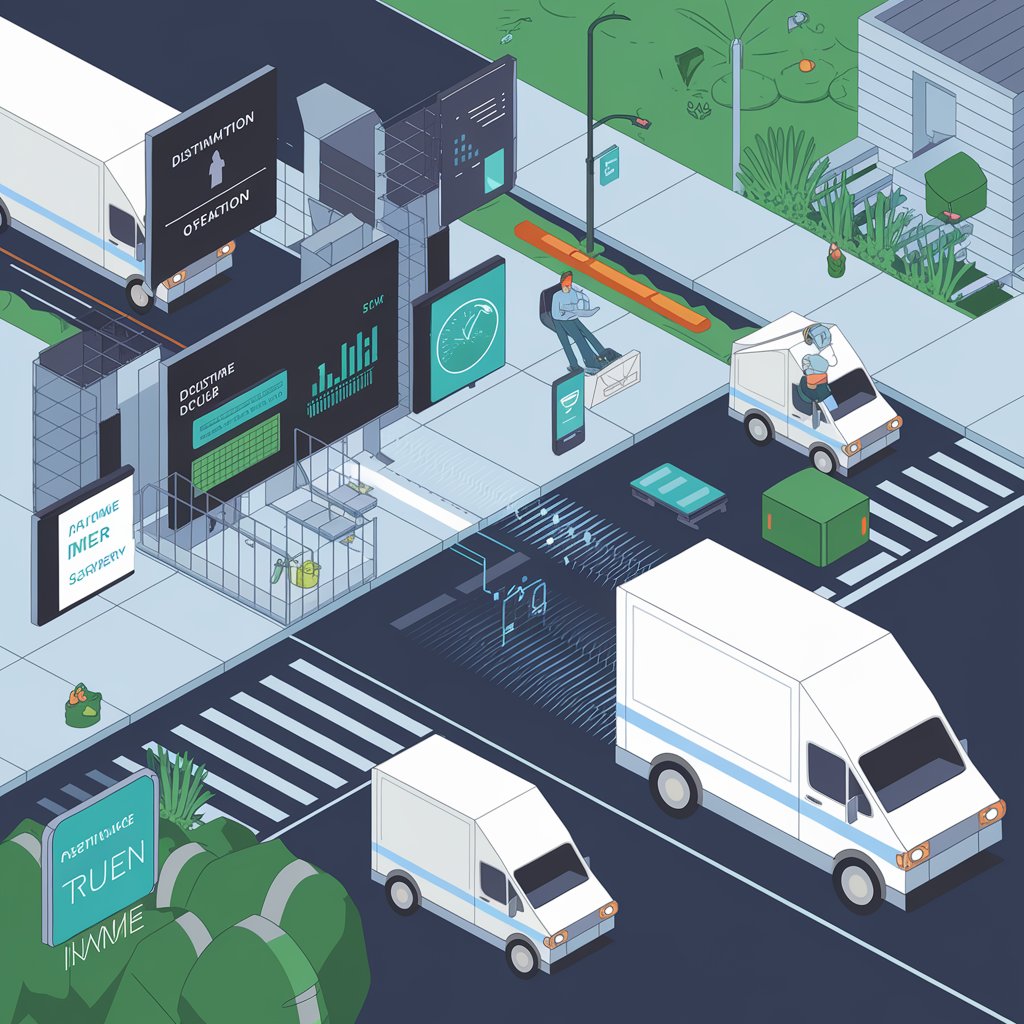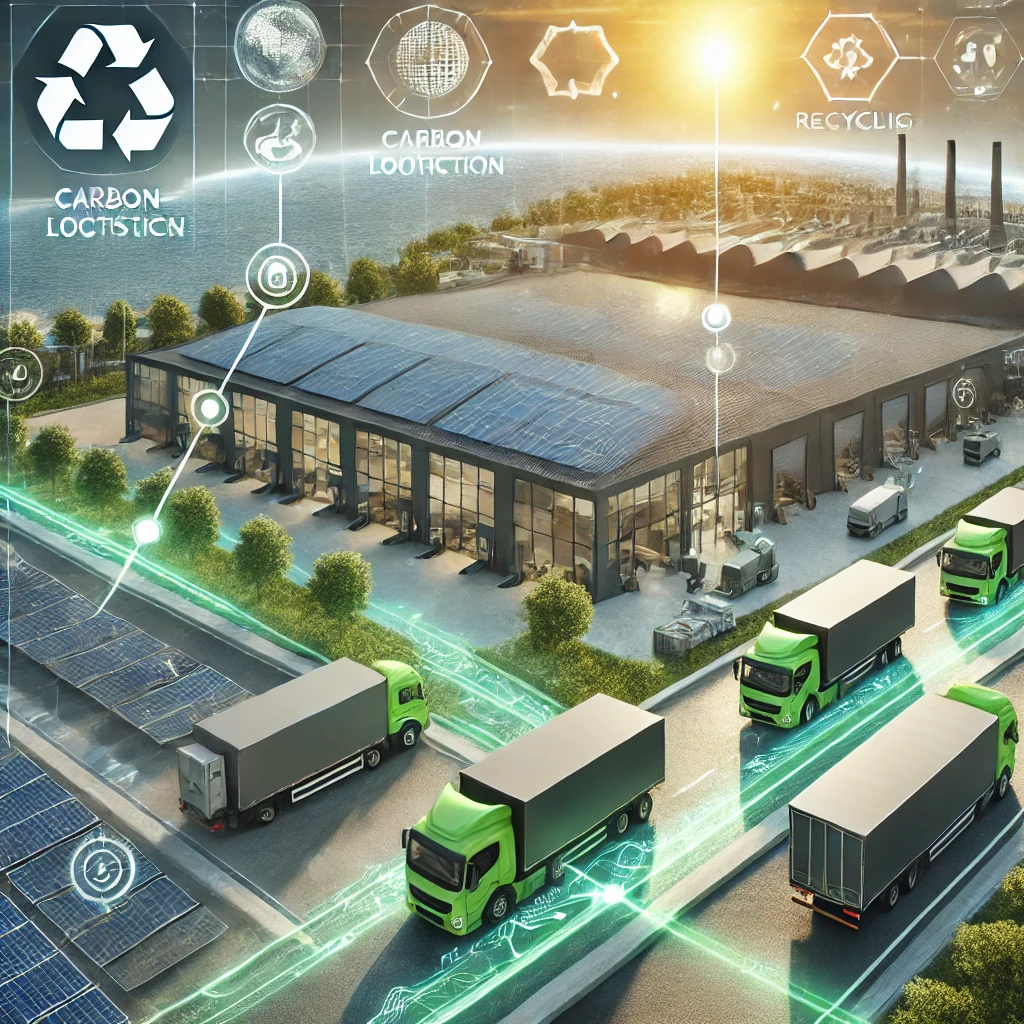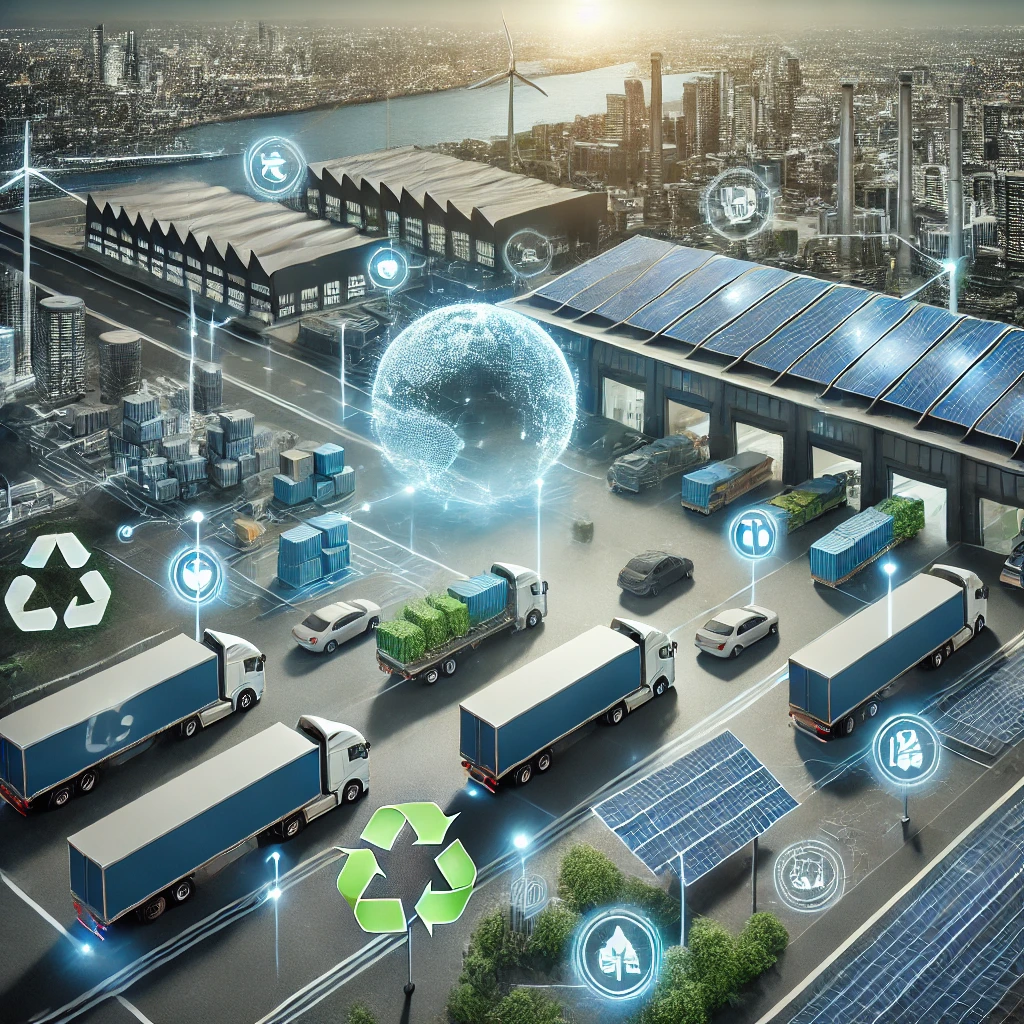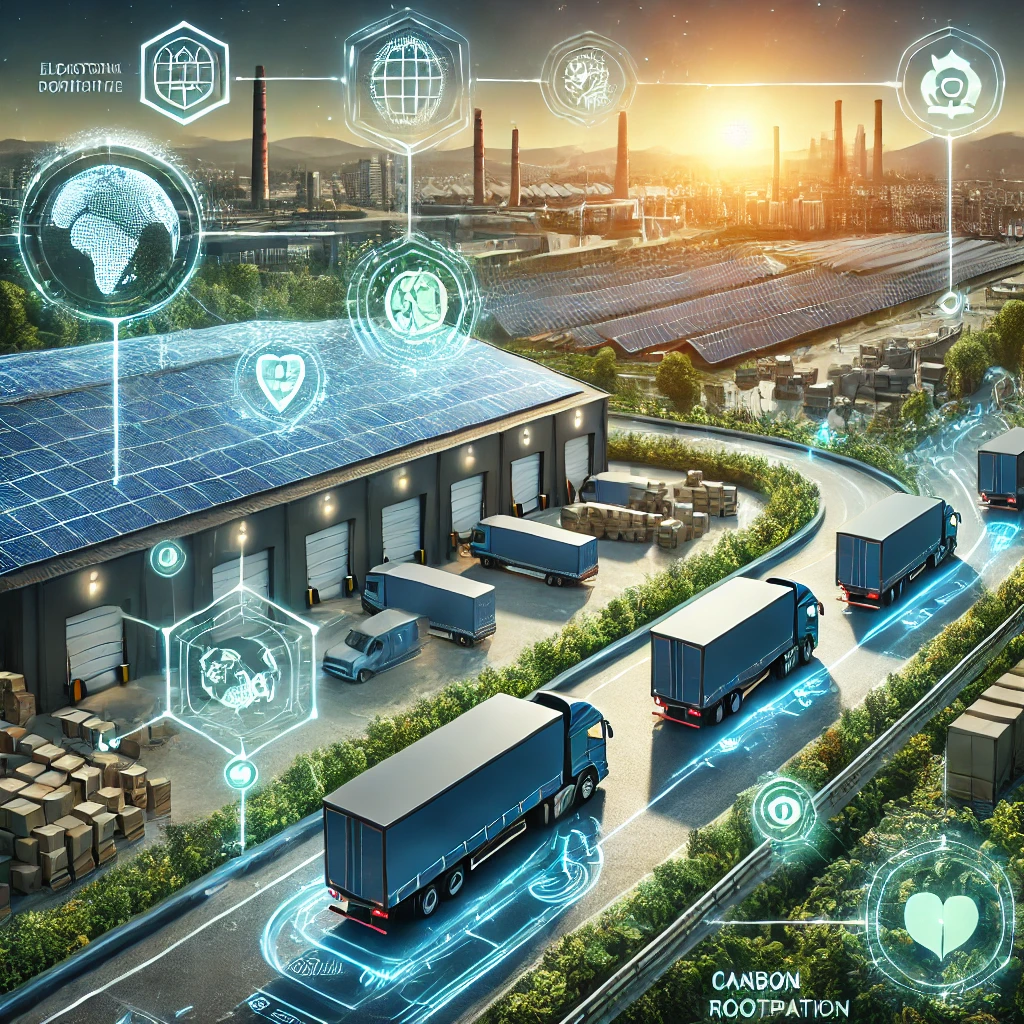Driving Eco-Friendly Supply Chains: A Comprehensive Guide to Sustainable Logistics Solutions

What are Sustainable Logistics Solutions?
Sustainable logistics solutions refer to practices and technologies that minimize the environmental impact of logistics operations while maintaining economic viability. Key areas include:
- Green transportation and fleet management
- Energy-efficient warehousing
- Sustainable packaging solutions
- Reverse logistics and circular economy practices
- Carbon footprint reduction strategies
- Waste reduction and recycling programs
- Alternative fuel and renewable energy adoption
- Sustainable supplier management
- Digital transformation for paperless operations
- Optimization of routes and load consolidation
By implementing these solutions, businesses can significantly reduce their carbon footprint and contribute to global sustainability efforts.
Benefits of Implementing Sustainable Logistics Solutions
- Reduced Environmental Impact: Lower greenhouse gas emissions and overall ecological footprint.
- Cost Savings: Decrease expenses through improved efficiency and reduced resource consumption.
- Enhanced Brand Image: Improve reputation among environmentally conscious consumers and partners.
- Regulatory Compliance: Meet increasingly stringent environmental regulations and standards.
- Increased Innovation: Drive the development of new, eco-friendly technologies and processes.
- Risk Mitigation: Reduce vulnerability to environmental-related disruptions and resource scarcity.
- Employee Satisfaction: Boost morale by aligning operations with environmental values.
Key Strategies for Sustainable Logistics
When implementing sustainable logistics solutions, consider the following key strategies:
- Green Transportation: Adopt electric or hybrid vehicles, optimize routes, and use intermodal transportation.
- Energy-Efficient Warehousing: Implement LED lighting, solar panels, and smart energy management systems.
- Sustainable Packaging: Use recyclable, biodegradable, or reusable packaging materials.
- Reverse Logistics: Develop efficient systems for product returns, recycling, and refurbishment.
- Carbon Footprint Measurement: Implement tools to accurately measure and track carbon emissions.
- Supplier Collaboration: Work with suppliers to reduce environmental impact throughout the supply chain.
- Waste Reduction: Implement lean practices to minimize waste in all logistics processes.
- Alternative Fuels: Explore the use of biofuels, hydrogen, or other alternative energy sources.
- Load Optimization: Maximize vehicle capacity to reduce the number of trips required.
- Digital Transformation: Leverage technology to reduce paper usage and improve operational efficiency.

Implementing Sustainable Logistics Solutions: Best Practices
- Conduct a Sustainability Audit: Assess your current logistics operations to identify areas for improvement.
- Set Clear Goals: Establish specific, measurable sustainability targets aligned with your business objectives.
- Develop a Comprehensive Strategy: Create a roadmap for implementing sustainable practices across your logistics operations.
- Invest in Technology: Adopt software solutions that support sustainability efforts, such as route optimization and energy management systems.
- Train and Engage Employees: Educate staff about sustainability initiatives and encourage their participation.
- Collaborate with Partners: Work with carriers, suppliers, and customers to implement sustainable practices throughout the supply chain.
- Monitor and Report Progress: Regularly track sustainability metrics and share progress with stakeholders.
- Continuously Innovate: Stay informed about new sustainable technologies and practices in logistics.
- Consider Certification: Pursue relevant sustainability certifications to validate your efforts and enhance credibility.
- Integrate Sustainability into Decision-Making: Make environmental impact a key consideration in all logistics decisions.

Challenges in Implementing Sustainable Logistics Solutions
While adopting sustainable practices offers numerous benefits, it’s important to be aware of potential challenges:
- Initial costs of implementing new technologies and processes
- Balancing sustainability with operational efficiency and cost-effectiveness
- Measuring and verifying the impact of sustainability initiatives
- Ensuring consistent practices across global supply chains
- Adapting to rapidly evolving sustainability technologies and standards
- Overcoming resistance to change within the organization
Careful planning and a commitment to long-term sustainability can help overcome these challenges.

Emerging Trends in Sustainable Logistics
As technology and environmental awareness evolve, new trends are shaping the future of sustainable logistics:
- AI and IoT for optimizing energy consumption and reducing waste
- Blockchain for enhancing transparency in sustainable supply chains
- 3D printing for localized production and reduced transportation needs
- Drone and autonomous vehicle deliveries for reduced emissions
- Circular economy models for maximizing resource efficiency
- Bioplastics and other eco-friendly materials for packaging
Staying informed about these trends can help you develop forward-thinking sustainability strategies for your logistics operations.
Conclusion
Implementing sustainable logistics solutions is no longer just an option but a necessity for businesses aiming to thrive in an environmentally conscious world. By adopting eco-friendly practices, companies can reduce their environmental impact, cut costs, and enhance their brand reputation. While challenges exist, the long-term benefits of sustainable logistics far outweigh the initial hurdles.
For businesses looking to revolutionize their logistics with sustainable solutions, Linbis logistics software offers a comprehensive suite of eco-friendly features. From carbon footprint tracking to route optimization for reduced emissions, Linbis empowers businesses of all sizes to implement and manage sustainable logistics practices effectively. Experience the power of green logistics and drive your business towards a more sustainable future with Linbis.
